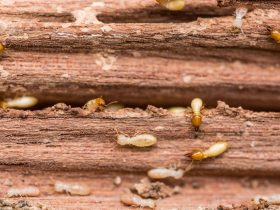We all love spring, and it is one of the favorite times of the year, until some people have allergies. Feeling like those eyes will never stop being watery, or attempting to sniff away the itch in the throat, can put a damper on the fresh outdoors. However, what if your home is the root of your allergen problem? It’s cockroaches, too. Read on to learn how these pests might harm your health and how to avoid them.
Were you aware that saelapest.com provides services for identifying pests? Actually, if you capture your bug and bring it to us, we’ll assist you in identifying it.
Identifying allergens caused by roaches during spring cleaning
Before talking about how to keep cockroaches away in the spring, it is important to understand what draws these pests to your homes at this time of year. Because the weather is suitable for them to survive, cockroaches and other pests usually emerge from hibernation in the spring. Furthermore, they can easily get food, drink, shelter, and warmth by breaking into your homes during this time of year.
As a result, it is natural for everyone to get concerned about pests as spring approaches. Before the spring season arrives, wise people always make plans for the best cockroach pest control.
But how?
Allergens in cockroach saliva and droppings have been shown to exacerbate allergy symptoms, especially in children. The spring is a great time for homeowners to take steps to cockroach-proof their houses because these pests like warm, humid environments. This will help them and their families avoid potential household allergy triggers.
Tips for Preventing Cockroaches
The following cockroach control advice from the National Pest Management Association (NPMA) should be noted by households during spring cleaning:
- Keep the house clean of crumbs and dirt, giving special attention to the kitchen and bathrooms.
- Clean food surfaces and counters.
- Do not pile up dirty dishes in the sink since the food scraps will draw cockroaches that are seeking food.
- Trash should be regularly emptied and kept in a sealed container.
- Food products in open boxes should be moved from cardboard into strong, airtight containers.
- Foods beyond their expiration dates should be thrown out.
- Pet bowls should be cleaned frequently, and pet food should be kept in a sealed container.
- Use a vacuum with a HEPA filter at least once a week.
- Use a wet cloth or a dust rag to regularly dust hard surfaces.
- Make sure crawl areas and basements have sufficient ventilation to keep the humidity level in the house at roughly 50%. To avoid moisture buildup, think about using a dehumidifier.
- Cockroaches prefer dirty locations, thu,s it is best to keep homes as clean as possible.
However, it is suggested that you leave pest control to the experts if these pests manage to get into your house.
Which Symptoms Indicate Cockroach Allergy?
Typical symptoms of cockroach allergies include:
- Sneezing
- Runny nose
- Red, watery, or itchy eyes
- Stuffed nose
- Itchy throat, mouth, or nose
- Postnasal drip.
- Coughing
- Skin rash or itchy skin
If your asthma is triggered by your cockroach allergy, you can also face:
- Breathing difficulties
- Pain or tightness in the chest
- A wheezing or whistling noise is made when exhaling
- Breathlessness, coughing, or wheezing that interferes with sleep
How Do Doctors Identify Allergies to Cockroaches?
Your doctor may perform a physical examination and take a medical history, and discuss your symptoms to try to diagnose a cockroach allergy. If your doctor suspects you have a cockroach allergy, they may recommend a skin prick test or a specific blood test. If you notice that your symptoms persist year-round, you could have a sensitivity to cockroaches.






